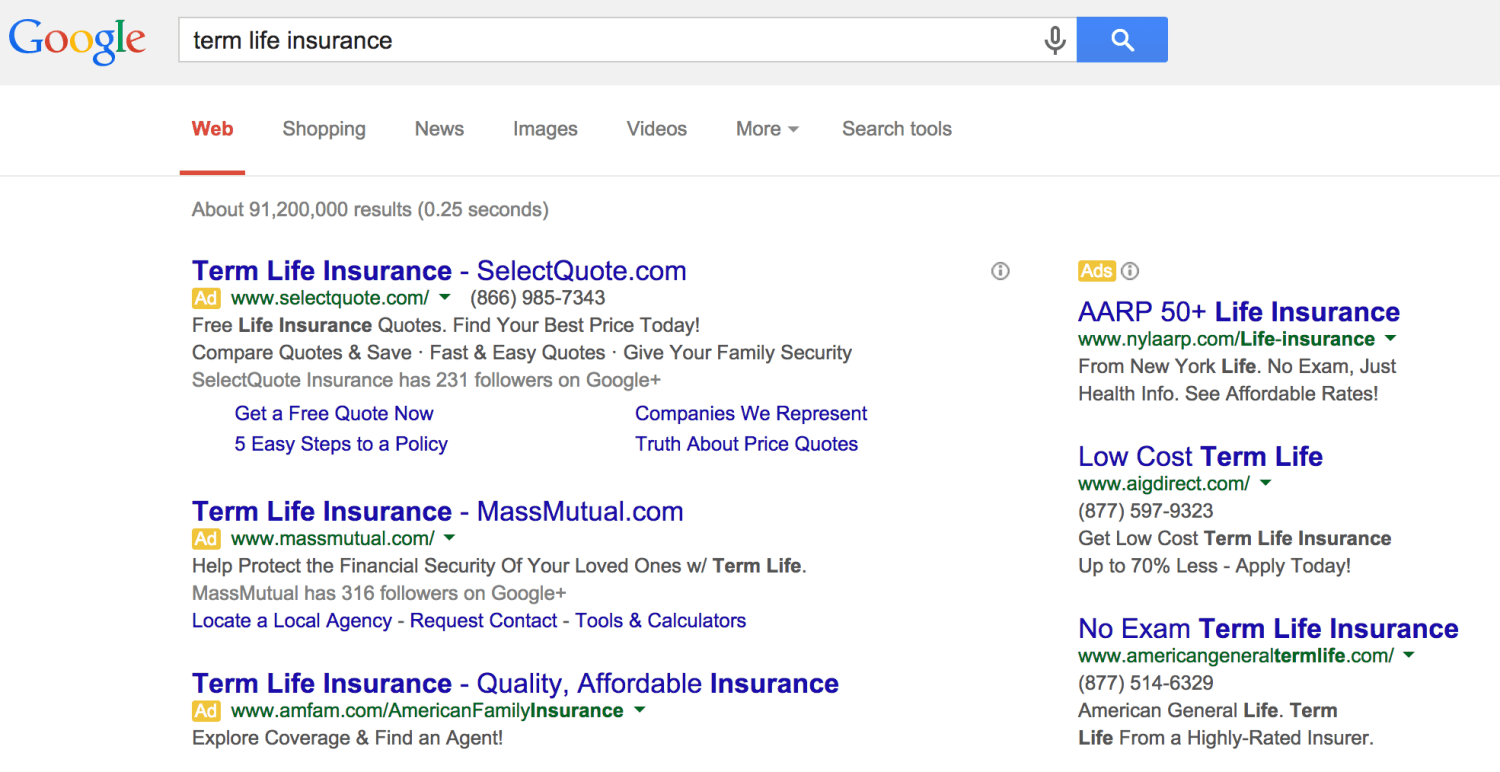The Reasons Why You Should Use Ad Group Negatives
by Jenny Hatch • October 14, 2014
Put a stop to your internal competition with ad group negatives.
By now you you have most likely seen the lists of 75 negative keywords you should add to every campaign. You know, to weed out showing up for irrelevant searches.
If you haven’t seen them, you should probably take a thirty second break to go skim them. You can find the articles, complete with accompanying negative keyword lists, here, here, and here.
You’re back? okay Good!
Now for the more nitty-gritty stuff: Why you should use ad group negatives at the ad group level.
At the ad group level, negative keywords help you increase keyword quality scores, increase CTR, lower CPA, and increase conversion rates because you aren’t showing for bad impressions and aren’t paying for non-relevant clicks.
On top of that, and what they do really well, ad group negatives help extinguish internal competition within your PPC account.
[Tweet “Use ad group level negative keywords to reduce internal competition. Learn why here…”]
For an example, we’ll use one of my campaigns for life insurance. In the campaign, there are 6 ad groups, each has an exact match and a phrase match of the keywords:
- life insurance
- life insurance quote
- life insurance rates
- life insurance calculator
- affordable life insurance
- low-cost life insurance
Now let’s do a search using Google.
Let’s say we are searching for a “life insurance quotes”. Without any ad group negative keywords inside the ad groups, Google will either show the ad text for “life insurance” or “life insurance quote” depending on which Google determines to be most relevant.
Google gives preference to showing keywords that match the search term exactly, followed by exact match keyword, and then highest ad rank. Using ad group negatives, we can tell Google which ad we want it to choose when multiple could be displayed rather than hoping that Google’s preferences work in our favor.
Keeping track of what ad group negatives we need where can be difficult. You can use a spreadsheet if you’d like, or you can go with my rule of thumb and put all the other account level negative keywords in negative keyword lists and still use ad group negatives on an individual basis.
Continuing with the life insurance example: The ad group life insurance would have quote, rates, calculator, affordable, and low-cost as ad group negatives since we only want the life insurance ad group to show for that and other variants of the keyword that we haven’t already created ad groups for.
Now that you know how to ensure that the ad that you want to be triggered will be triggered from the right keyword, you can make the ad text specific to that keyword.
After all, if your keyword is completely in the ad text, then the keywords will be bolded (see example below), which will increase the relevancy, the quality score, and the likelihood that your ad is clicked on (aka CTR).
Now that you have Ad Group keywords to help Google know which ad to show, it’s time to ensure that your ad text is specific to each keyword rather than having one ad text for all of the keywords.
Back to the life insurance example. If you search the phrase “life insurance quote”, which ad are you most likely to click on?
Need Life Insurance?
somecompany.com/Life-Insurance
Anonymous & Free Quotes Instantly.
Find Life Insurance. Try Now!
– or –
Get Life Insurance Quotes
somecompany.com/Life-Insurance-Quotes
Anonymous & Free Quotes Instantly.
Find Life Insurance Quote. Try Now!
[Tweet “The more relevant your keyword and ad are, the more bold, and the higher chance of #PPC clicks you get”]
You would rather click on the second one, right? I thought so. Or are you one of the people that always clicks on the first thing they see? 😉
So rather than you sitting here any longer reading a blog post, go add some negative keywords to your ad groups. Take a look at your search term report and see which keywords and search terms have the highest discrepancies and start there.
It’ll help improve keyword and ad text relevancy, boost your keyword’s quality score, lower CPA, and increase CTR; I promise!







